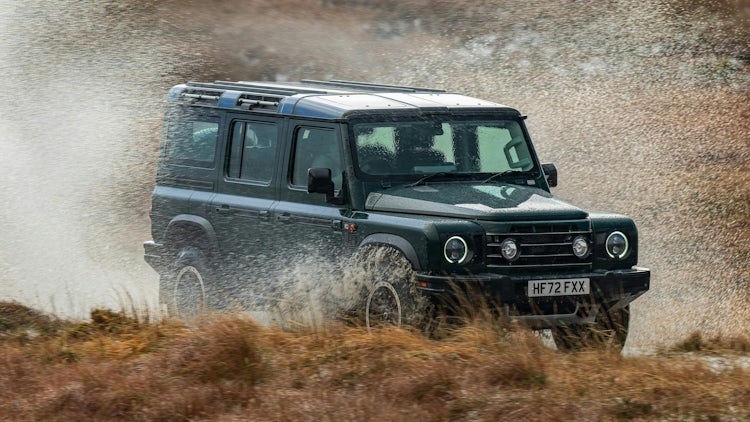Compare the best 4x4 cars
High quality 4x4 cars from rated and reviewed dealers

Best 4x4s of 2024 in the UK
Most SUVs might look like they can go anywhere, but only a select few have been built with heading off the beaten track in mind. Whether you plan to traverse mountains every weekend, need a car that can stand up to life on a busy farm, or simply live in a rural area and want something that will survive a tough winter, a proper 4x4 could be the best choice for you.
Here, our expert reviews team has put together a list of the very best off-roaders. Note, though, that Carwow’s overall scoring system takes everything from comfort to practicality and everything in between into account, but here we’re ordering the cars with a focus primarily on off-road ability.
1. Land Rover Defender
Land Rover Defender 110 review2. Toyota Land Cruiser
Toyota Land Cruiser (2018-2024) reviewSell your car for what it's really worth
The free, easy way to get 5,500+ dealers all over the UK bidding on your car
3. Mercedes G-Class
Mercedes-Benz G-Class review4. INEOS Grenadier
INEOS Grenadier review5. Jeep Wrangler
Jeep Wrangler review6. Land Rover Discovery
Land Rover Discovery review7. Suzuki Jimny Commercial
Suzuki Jimny review8. Subaru Outback
Subaru Outback review9. Dacia Duster
Dacia Duster (2019 - 2024) review10. Range Rover
Range Rover reviewBrowse all cars
Advice about 4x4s
4x4 car FAQs
Browse other car types
- 4x4 Cars
- 7-Seater Cars
- Automatic Cars
- Cheap Cars
- Convertible Cars
- Coupe Cars
- Crossover Cars
- Electric Cars
- Estate Cars
- Executive Cars
- Family Cars
- First Cars
- GT Cars
- Hatchbacks
- Hot Hatches
- Hybrid Cars
- Luxury Cars
- MPVs
- Medium-sized Cars
- Most Economical Cars
- Motability Cars
- SUVs
- Saloon Cars
- Small Cars
- Sports Cars
- Superminis
Popular used car models
- Used Peugeot 3008
- Used Ford Puma ST
- Used Vauxhall Corsa
- Used Toyota Corolla Touring Sports
- Used Ford Kuga
- Used Ford Focus
- Used Ford Focus Vignale
- Used Volkswagen Up GTI
- Used Toyota Aygo
- Used Volvo V60
- Used Ford Ecosport
- Used Hyundai Tucson
- Used Mercedes C-Class Coupe
- Used Vauxhall Mokka X
- Used Volvo XC60
- Used BMW X5
- Used Kia Sportage
- Used Toyota C-HR
- Used Lexus RX
- Used Peugeot 2008
- Used Peugeot 208
- Used Volkswagen ID.3
- Used Vauxhall Insignia Grand Sport
- Used Dacia Duster
- Used Seat Ateca
- Used Renault Captur
- Used Fiat 500
- Used Land Rover Range Rover Sport
- Used Audi A3 Sportback
- Used Audi A6 Avant
- Used Kia XCeed
- Used Audi A5
- Used Mercedes C-Class Estate
- Used Volkswagen Golf GTD
- Used Vauxhall Grandland X


